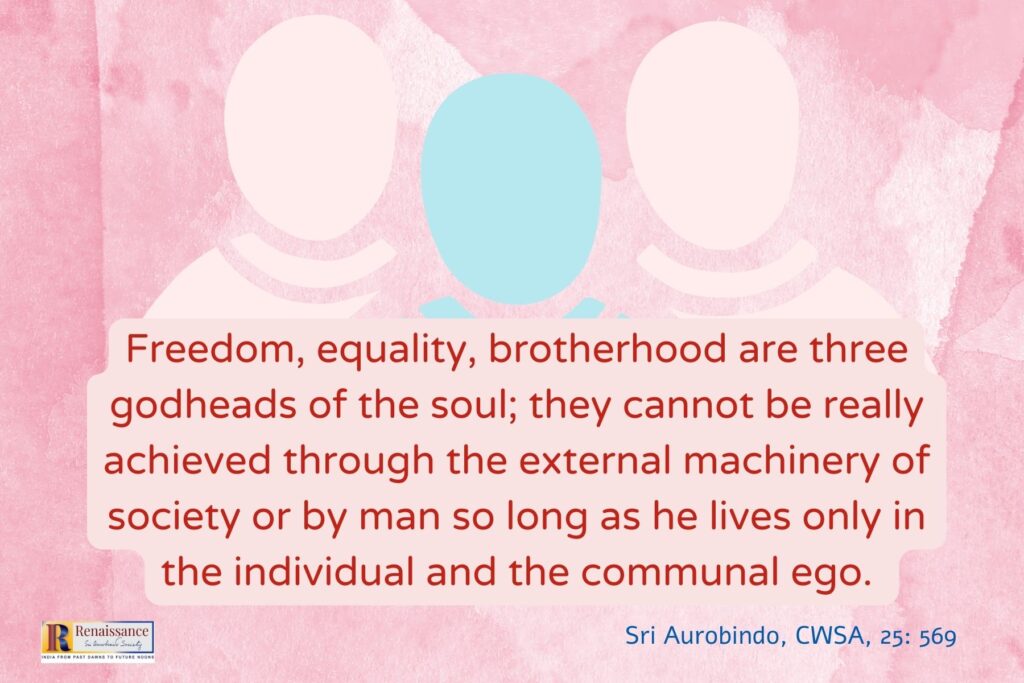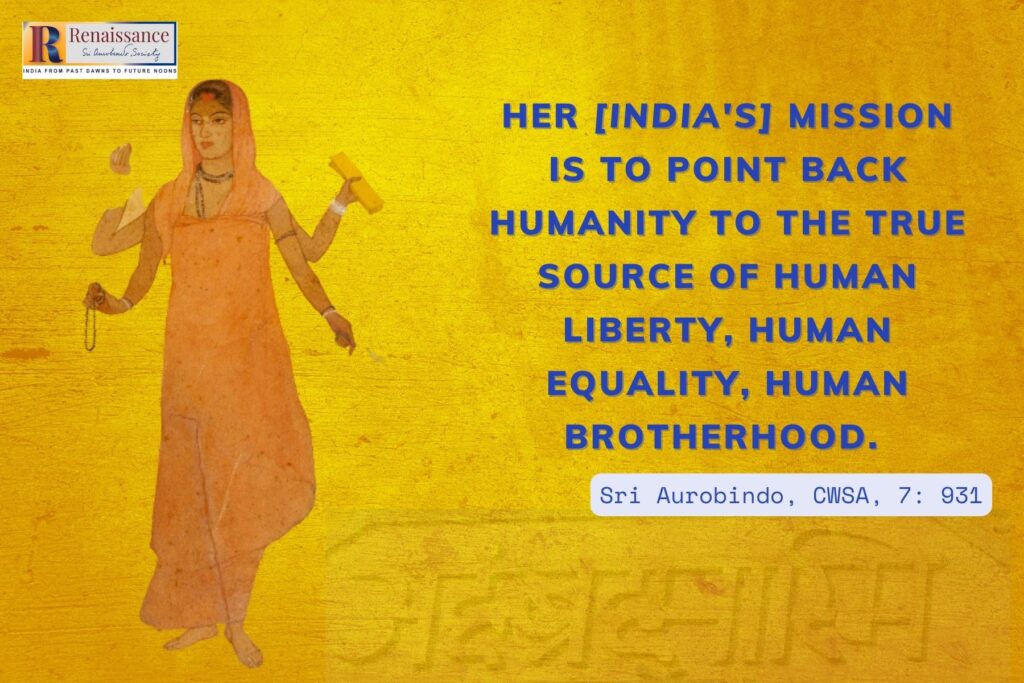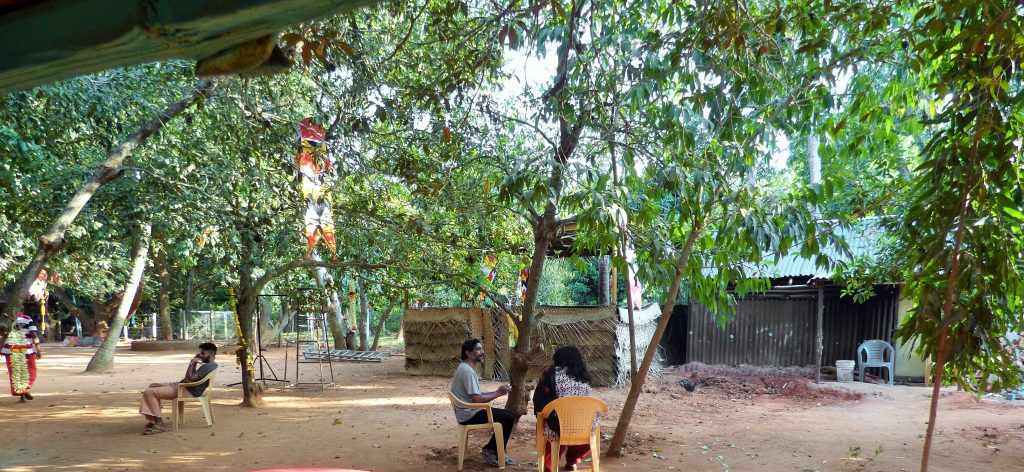The Religion of Humanity and Democratic Trinity – Part I
In these passages from ‘The Human Cycle’, we read Sri Aurobindo’s description of the gains made by an intellectual religion of humanity.
The Religion of Humanity and Democratic Trinity – Part I Read More »




